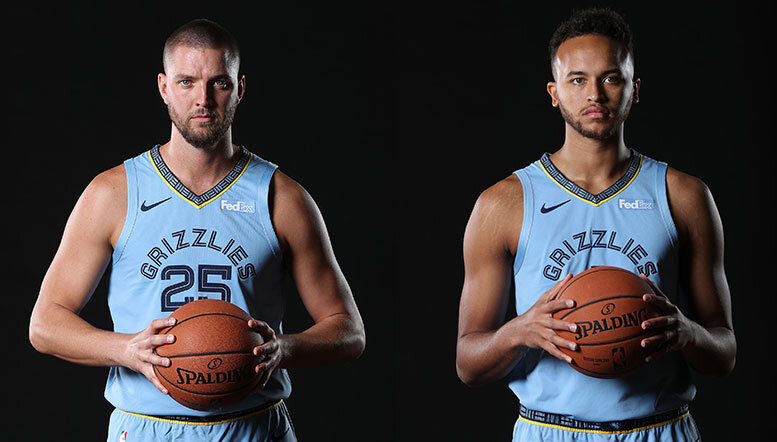MEMPHIS – The gratitude is clear.
Kyle Anderson has nothing but appreciation for the opportunity he was given the past four years with the San Antonio Spurs. There remains admiration for future Hall of Fame coach Gregg Popovich and the lessons Anderson learned while with one of the most successful organizations in all of sports.
Still, something about his departure from San Antonio in July doesn’t quite sit right with Anderson, who was quickly informed the Spurs would bypass the option to match the four-year, $37.2 million contract the Grizzlies offered to him as a restricted free agent.
But forgive Anderson if he no longer wants to focus on the past. He dealt with those questions earlier in the week at media day. Now, the 6-9 versatile playmaker only wants to hone in on the opportunity in the present and foreseeable future with the Grizzlies.
“It’s just two different organizations (and) that was my time in the past, but I’m here now,” Anderson said after his first training camp practice with the Grizzlies. “There are going to be similarities and there are going to be differences, but I can’t get into them right now.”
What Anderson can get into in relative short order is a transformative role with his new team, a squad that is relying on his length, versatility, intelligence and winning pedigree to provide a jolt at small forward. For the second time in three years, Memphis prioritized spending to land an outside free agent at that position, with oft-injured Chandler Parsons arriving in 2016 on a four-year, $94 million max deal.
Stunning Stat
$131 million
That’s the combined total of the four-year contracts the Grizzlies doled out within the past three years to Chandler Parsons and Kyle Anderson with hopes of solidifying the small forward position.
The Grizzlies maintain hope that Parsons can be a productive reserve after reporting to camp buoyed by a recent restoration procedure on his knees in Germany. But the team fully expects Anderson to be an immediate impact player as an essential bridge between promising rookie lottery pick Jaren Jackson Jr. and veteran catalysts Mike Conley and Marc Gasol.
Had Parsons panned out the past two seasons instead of being limited to only 70 games because of knee issues, the Grizzlies likely wouldn’t have had a need for Anderson this summer. But with both now in tow at a total of $32.7 million in 2018-19 salary cap space, the best-case scenario is that they collectively solidify a forward spot that’s essentially been in flux for the Grizzlies since Rudy Gay was traded in 2013.
While Parsons, 29, is trying to prove he can regain some of what he once had from his breakout years in Houston and Dallas, Anderson is ready to show he can take the next step coming off a career season in San Antonio. Regardless, the message from Grizzlies’ coach J.B. Bickerstaff is basically the same to both.
“Just play ball,” Bickerstaff said of what he’s told Anderson and Parsons entering camp. “Everything is going to work itself out for what’s best for the team. Both of them have a high skillset, both can be versatile in the way they play. And, they can play together. So it’s not one of those things where it feels like it’s, ‘him against me.’ There are minutes there for everybody, so compete, go after it and push one another. But at the end of the day, it’s going to come down to what’s best for the team and fit.”
Parsons simply wants to fit in again.
Midway through his deal in Memphis, Parsons is no longer burdened by expectations to live up to one of the team’s three max contracts. It’s basically a forgone conclusion that the production won’t match the value at this point. But if Parsons can remain healthy and available for around 60 games, there’s confidence he can add some needed intangibles to the rotation.
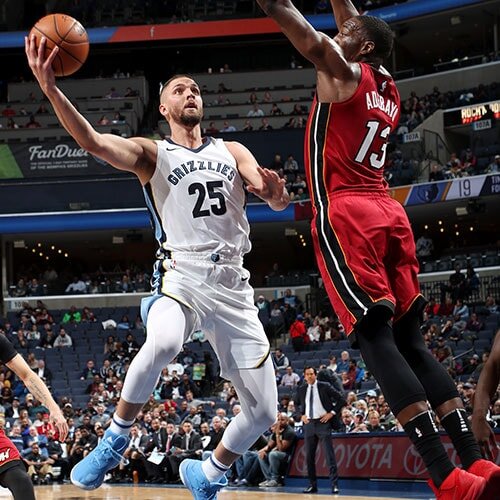
Parsons shot a career-high 42.1-percent on threes last season but played only 36 games and averaged a career-low 19.2 minutes. His best stretch came in the first two months, when Parsons scored double figures in 11 of his first 20 games, including 24 points in 19 minutes during an Oct. 28 win over Houston. At that time, Parsons was one of the driving forces behind a Grizzlies’ second unit that was one of the league’s most productive benches before injuries derailed the season.
Beyond Gasol and Conley being locks in the starting lineup, Bickerstaff has been tight-lipped about his leanings at the three other starting spots, including small forward. Parsons is likely to spend more time at power forward than small forward, a shift that started last season as Bickerstaff used smaller lineups. Bickerstaff has said he wants to rekindle the second-unit production the team had early last season.
“We expect him to be on the floor,” Bickerstaff said of Parsons. “We expect him to fight and earn his minutes, just like everybody else. He’s in a much better place right now than he’s been the past two summers when we came back to training camp. Obviously, we’re cautiously optimistic about it, but we’re excited about where he is. Healthy, he adds a dynamic to this team that can help us.”
Parsons was a bit more reserved in his comments at media day earlier this week than he has been in the past. He’s first to admit that he’s said many of the same optimistic things the past two seasons, only to get midway through the season and battle injuries and soreness before being shut down.
“I’m not going into the season with that on my shoulders this year,” Parsons said. “I’m not coming in having to talk to the training staff about how many minutes I can go, or asking J.B. if I’ll be able to get back in, just dealing with any of that. We’ve had no setbacks over the summer. Everything has been about being ready and putting myself in position to finally get back to playing the way I know I can play.”
Parsons also insists everything he came to Memphis to do can still be accomplished.
“When I signed, I was coming for three reasons,” Parsons said. “I wanted to play with Mike and Marc, I wanted to play for J.B., and I wanted to help this team and this city win at a high level. All those things are still in place. So that’s the reason why I feel there’s still a lot of opportunity in front of me here.”
Likewise, a new opportunity awaits Anderson.
After the Spurs drafted him with the final pick of the first round in 2014, Anderson spent three years in the development pipeline before his breakthrough came last season. That’s when he stepped into a void at small forward amid Kawhi Leonard’s prolonged injury absence to start 67 games. Anderson averaged career highs at 7.9 points, 5.4 rebounds and 2.7 assists while shooting 52.7 percent from the field.
He was effective as a point forward for the Spurs, essentially a middle man to set up Tony Parker and Manu Ginobili on the perimeter and LaMarcus Aldridge and Pau Gasol either down low or for face-up looks. In Memphis, Anderson will calibrate a pass-heavy, motion offense with Conley as the dynamic guard and Gasol and Jackson as the versatile frontcourt options.
“He’s bright, so it’s pretty easy,” Bickerstaff said of Anderson. “He’s got a great feel for the game. You don’t have to tell him much. Obviously, you’re putting in different plays and he’ll have to learn those like anybody else. But when you’re just playing basketball, there are not too many people in this league who are better at just having a pure feel for the game than he does. He knows where to be. He knows when to cut. He knows who to pass to. He knows how to defend, who to defend, where to be defensively. You don’t have to over-coach him. Just give him the freedom to do what he does.”
That freedom has also allowed Anderson to move forward with his career. The challenge now is to balance the eagerness to push and pick up as many new concepts as quickly as possible while also taking a cerebral approach and allowing the transition to flow naturally without forcing anything.
“It’s important early in the season to build a foundation, to build a base,” Anderson said of helping the Grizzlies regroup from a 22-60 season. “You don’t just wake up in the playoffs, or just get rolling out of nowhere. It’s like coach John Wooden said, ‘Play fast, but don’t hurry.’ You’re trying to play fast and get your legs under you. But you can’t hurry; you still have to think your way through things. I’m used to it.”
Anderson is also getting used to his new surroundings and expectations.
“I’m not in San Antonio no more,” he said to deflect another set of Spurs-related questions on Tuesday. “My heart’s in Memphis, I’m in Memphis. I’m just ready to go for a new team.”
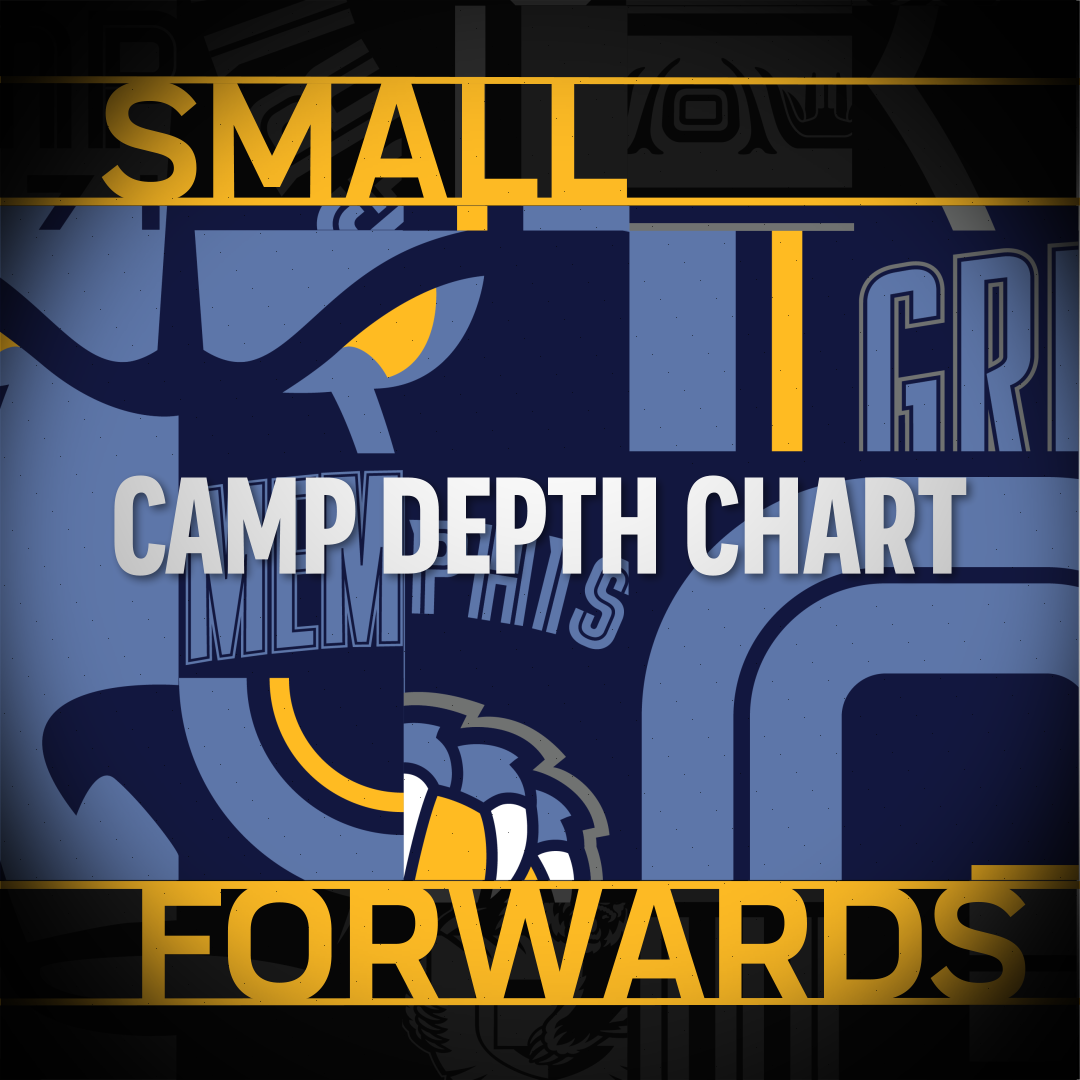
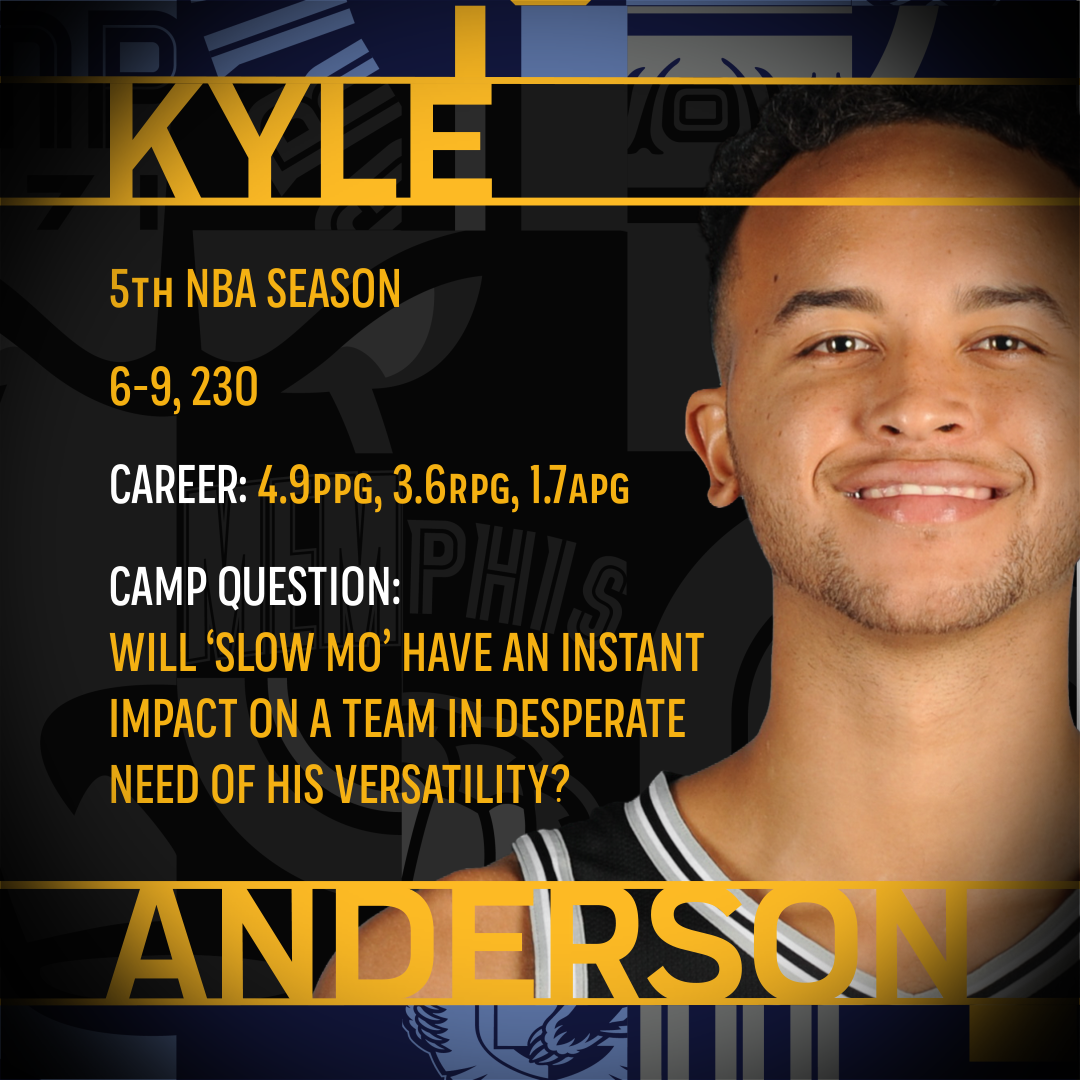
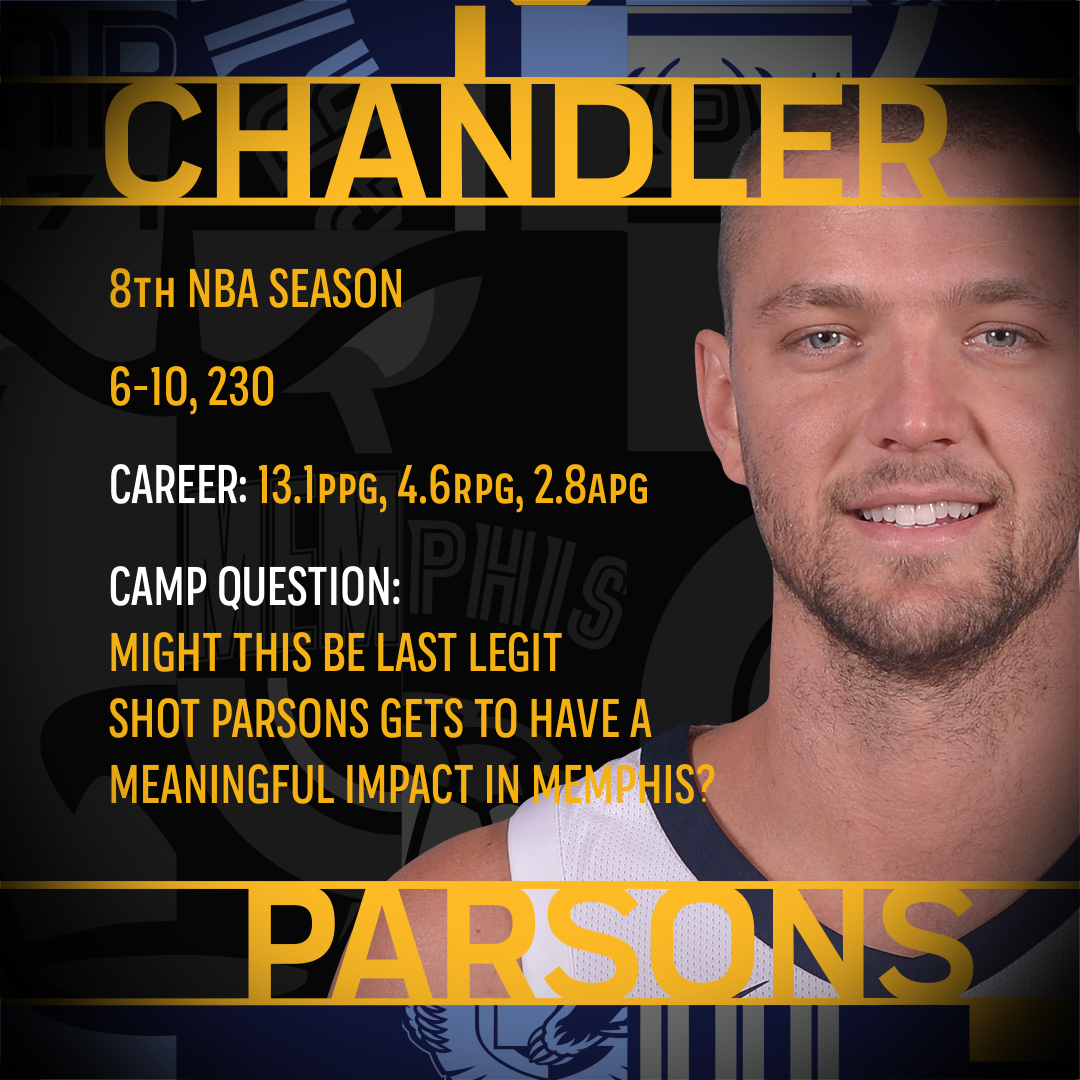
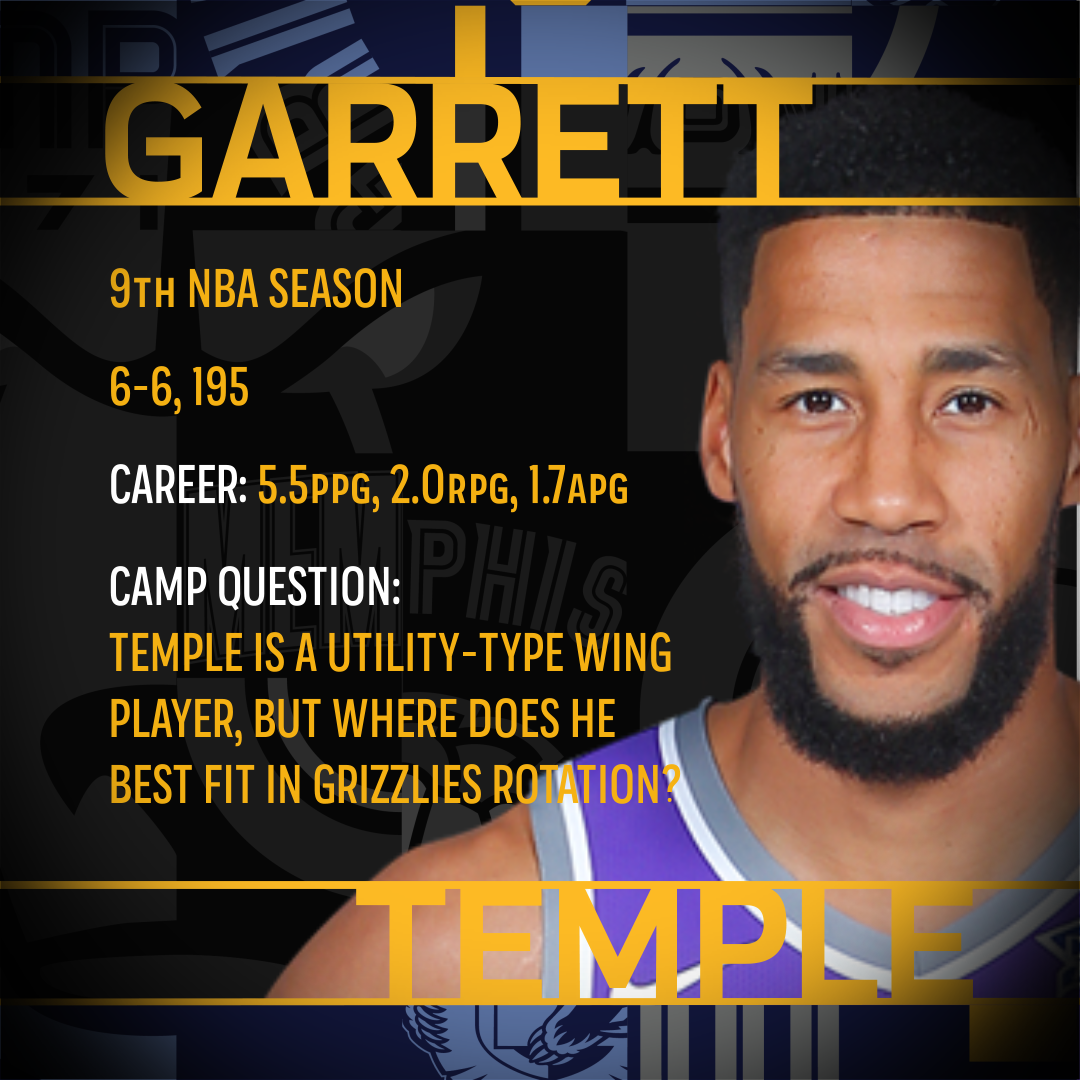
The contents of this page have not been reviewed or endorsed by the Memphis Grizzlies. All opinions expressed by Grind City Media are solely its own and do not reflect the opinions of the Memphis Grizzlies or its Basketball Operations staff, owners, parent companies, partners or sponsors. Its sources are not known to the Memphis Grizzlies and it has no special access to information beyond the access and privileges that go along with being an NBA accredited member of the media.
